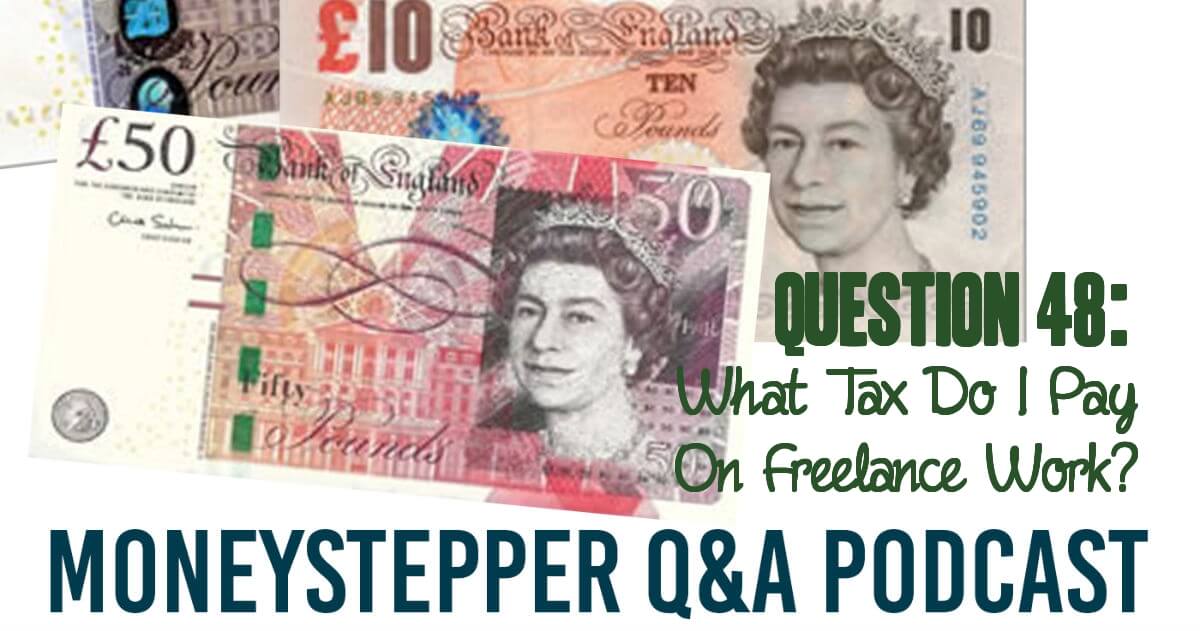Michael asks: “I’m a journalist who is registered with a company on a PAYE tax code, but I do some occasional work outside of it. Do I need to register for assessment on the HMRC site? And when it says receipts, what does it mean?”
[powerpress]
Q&A 48 – What Tax Do I Pay On Freelance Work? – Shownotes
Today’s question comes from Michael:
I’m a journalist who is registered with a company on a PAYE tax code, but I do some occasional work outside of it (by the end of the tax year it’ll probably stand at £1000).
Do I register for assessment on the HMRC site? And when it says receipts, what does it mean? Does it mean notes from the bank as well as my invoices?
Income Tax On Side Income
Nice Michael – always good to see people trying to hussle and earn some side income. Multiple streams of revenue is always a good thing for anyone seeking to obtain financial independence.
You’re also asking the right questions about your tax situation. You will need to pay tax on this side income and hence you’ll have to complete a self-assessment tax return. This is quite a simple process when the only difference to the PAYE you currently pay is this tax.
Visit the HMRC website and you’ll see some very straight forward instructions on how to register for tax.
Your taxable income will then be the payments you have received for your work (which you say are around £1,000). You’ll then be able to deduct any related expenditure. For instance, say you did a journalistic piece on a sporting event, then your ticket and travel for that event could be deducted from your income to make a net position on which you’ll pay tax.
Therefore, make sure you have all of your receipts for these allowable expenses and proof of your income. Unless you are audited, you will never actually need to show these to the HMRC (they are very trusting folk), but you need to have them kept for at least 6 years in case you need them in the future.
Filing Your Tax Returns
Then, just fill in the tax returns with your gross income and these allowable expenses and calculate your added income tax based on your income tax band. That’s about it.
Many people try to avoid tax for these cash in hand types of things. You shouldn’t. One, it’s obviously hugely immoral as well as being illegal, and if you get caught the penalties can be pretty severe.
If you need any more advice, give the HMRC helpline a call. It sometimes takes a while to get through, but in my experience they are incredibly helpful when you actually get to speak to the right person.
Ask Your Question
This show runs three times a week and answers all of your personal finance questions. If you have any questions, please don’t be shy to ask. You can ask in three ways:
- Leave a comment on any of the Q&A podcast shownotes (including this one)
- Email me at moneystepper@gmail.com
- Leave a message on the Speakpipe App which you will find below and on our “submit a question” page:

Nice answer Moneystepper. That’s why I am keeping all documents for future use and just in case when the audit team asks. And, it’s better to pay taxes than to deal with a great amount of tax later on.